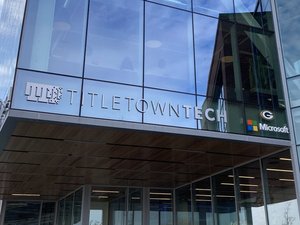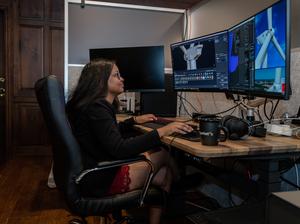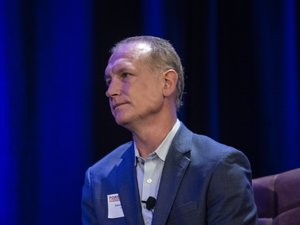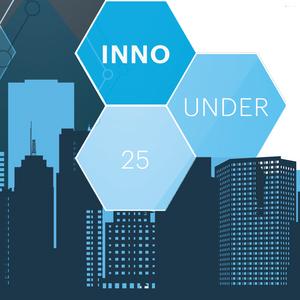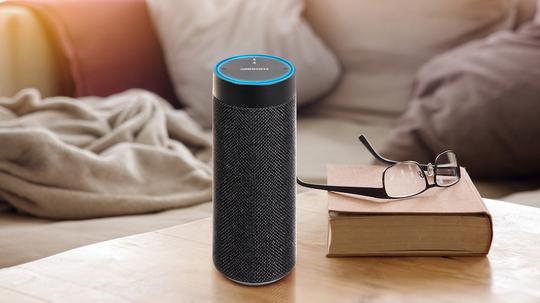
This is the first in a series of stories in which Wisconsin Inno talks to founders about startup failure. Have a failure story we should cover? Let us know at WisconsinInfo@AmericanInno.com.
Building a startup isn't easy. You know the stat—90 percent of new companies fail.
Coming up with the right idea is a process. Finding funding is always a challenge. And becoming profitable can be nearly impossible.
For Talktor, a Beloit, Wisc.-based startup that set out to create a smart home healthcare assistant, answering a market need and finding customers ended up being its biggest obstacle. And after two years of trying to sell its service, Talktor is shutting down.
Co-founded in 2017 by CEO Walker Lillard, Talktor built a smart home healthcare assistant platform designed to work with Amazon Alexa and Google Home devices. The startup aimed to sell the platform to healthcare systems and private practices, who would then offer the service for free to their patients. Using Talktor’s tech, patients could ask their smart home device to book a doctor’s appointment for them, and it would automatically connect to their provider’s scheduling system.
Talktor intended to sell its platform to providers on a subscription basis for $50 per month per physician, but the startup never managed to get a single paying client.
Early in the startup’s lifecycle, Talktor participated in startup accelerators, such as gener8tor’s gBeta program and the Madworks Seed Accelerator. Talktor was also primarily bootstrapped, only raising $15,000 from friends, family and accelerator programs. Additionally, Lillard appeared on Wisconsin Inno's 2018 25 Under 25 list.
Though Talktor’s last operating day has yet to be determined, Lillard said it will be before the end of the year. Once Talktor’s doors are shut for good, Lillard said he is going to focus on coaching local startups and figuring out his next business idea.
To dissect Talktor and identify its cause of death, Wisconsin Inno chatted with Lillard about what his startup set out to do, why he’s shutting it down and what important lessons he learned along the way.
What was Talktor’s product exactly?
We created a software where people could book doctors appointments through smart-home devices, like Amazon Alexa and Google Home. Basically, they would just say ‘Hey, book me an appointment with this provider at this time,’ and it would go directly to that provider’s scheduling system.
Throughout Talktor’s lifetime, what was its biggest milestone or success?
We scored a few partnerships with companies like the Wisconsin Medical Society, and we were working on contracts with the Wisconsin Chiropractors Association and the Wisconsin Dental Association. However, they ended up falling through, mostly due to a lack of communication. But we were really excited to be working with companies like that.
Can you describe what the state of the business was like just a year ago?
We had some [clients] lined up ready to move forward with getting integrations built for large companies, like Epic and other scheduling services. We also were in communications with large health systems like Aurora and Athena Health, but we were still working on our sales process because we had to have a product first before we actually started selling this to people.
We were in a weird state of being able to sell and not being ready to sell quite yet. We were really close to getting our product out to the world but we were also bootstrapping this entire project and it took a lot of funds out of our own personal accounts to keep things moving forward.
"We were too early to market."
What were some early warning signs that Talktor wasn’t going to make it?
We got so far with so little cash that after a while, we got to the point where we had some really big-name executives working for large health systems saying, ‘This is a very difficult industry. Maybe you should try utilizing this in other industries first.’ And I don’t think that we considered moving into other markets. We were just so focused on working with the medical industry that we weren’t heeding to their advice. We just kept trying to push forward and it ended up kind of biting us in the end.
What ultimately led you to the decision to shut down Talktor?
Once we had a base product and something ready to sell, we noticed that there were a lot of companies out there that stated they were interested in the product [but] were actually kind of ignoring us for a while. They were basically saying ‘We’re very interested in moving forward with you, but you need to have customers first.’ And that was troubling because we couldn’t get customers without having these partnerships first, so we were kind of stuck between a rock and a hard place.
We were trying to go out there and sell individually to small practices but they wanted to have the approval of these larger organizations first before they started working with our product. We were kind of in a catch-22 and it ended up just extending to the point where we ran out of funds.
Looking back, could shutting down have been avoided in any way?
Honestly, the only thing that we could have done differently is we could have waited for the market to have more of a need for the product. The smart home market is still kind of growing at this point and not too many people are making money off of it yet. If we waited another [one] to two years, it probably would have been a lot easier for us to sell.
If you had to in just one sentence, what would you label as the cause of death?
We were too early to market.
What are the biggest lessons you learned from this experience?
Nobody wants to talk about money right away when they’re starting a business, but having a plan for finances, and having a set plan to move forward with getting financing and investment is probably the best way to go when you’re starting a business, instead of trying to bootstrap. You don’t want to take on too much of a personal burden and end up damaging your own assets and personal life.
Describe how you’re approaching new projects right now through the lens of the shuttered one. What’s different?
I’m noticing that I’m automating more of what I do so I don’t have to take all the personal burden myself.
How has this experience personally affected you emotionally or financially outside of the office?
It is definitely discouraging to know that one of your business ideas didn’t work out. Financially, of course, it wasn’t easy because you put all your time and money into a product that doesn’t end up working out. But money is a temporary thing. You can always work your way up to getting something else in the future. You just got to keep working and pushing forward through it.
This interview was edited for length and clarity.


